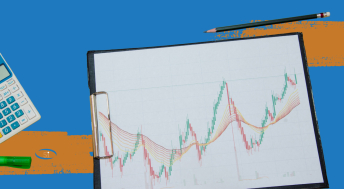While ETFs are often viewed as an investment tool only for passive investors who are fine having their portfolio “do what the market does”, I would argue ETFs can be used for much more than. In this post I’m going to share why I think ETFs are a great investing tool, not only for passive investors, but also for active investors.
They are a great tool for investors transitioning from passive to DIY
In investing, there is no need to choose between being an exclusively passive ETF investor or a DIY stock investor. There’s certainly room for investors to do both and create their own hybrid strategy. Investors who want to make the gradual switch to DIY stock investing can also take a hybrid approach by starting with broader market exposure through ETFs as core holdings, then selecting individual stocks as “satellite” holdings. As one gets more comfortable with the risks and concentration of owning individual names and develops a more refined strategy, an investor can slowly sell off units of core ETF holdings (or take new cash that come into the portfolio) and move more towards individual names.
There are many ETFs with niche exposures that allow you to differentiate from the market
There are enough ETFs and variety out there for an investor to create a portfolio of ETFs that he or she views as more optimal than the broad market. An example we often use is owning a TSX ETF which would be overweight in financials, materials and energy. A more optimal allocation may include increased exposure to technology, industrials and other cyclicals for investors looking for growth or utilities and REITs if one is looking for a higher yield than TSX. These adjustments can be achieved via specific sector ETFs. One can also tilt their portfolio towards smaller market cap ETFs that may have higher growth potential and are not well represented in market-cap weighted indices.
Why buy one or two stocks when you can buy the sector?
While this sounds like a rhetorical question, there is an actual reason for this: superior returns by being concentrated in a winning stock of course! But the trick is getting to a level of conviction where one can believe the particular stock is a winner in a specific indsutry. Of course, this can require a lot of time and energy researching a company and its competitors. Meanwhile, one may want exposure to this sector until deciding which name(s) to be more concentrated in. The solution: ETFs. For example, you want exposure to the cybersecurity space and are bullish on the sector in general. To not rush the decision of which cybersecurity stock(s) to pick while getting exposure one can purchase an ETF like the First Trust NASDAQ Cybersecurity ETF (ticker: CIBR) or ETFMG Prime Cyber Security ETF (ticker: HACK) to benefit from industry tailwinds and ultimately let the market decide which individual companies get a higher weighting in the ETF (assuming a market-cap weighting).
Low knowledge areas
Related to the point above, another benefit to ETFs is that they give investors access to instant diversification in areas that are far out of an investor’s realm of knowledge. For example, an investor may want emerging market exposure in their portfolio for geographic diversification. If one knows barely anything about emerging markets, it can be a daunting task to learn the ins and outs of companies in foreign countries that have very different economic cycles, regulatory and competitive. Many investors may not even want to own individual securities outside of North America and this is understandable. Again, ETFs offer a solution to gain this exposure of broader regions or specific countries. Of course, low knowledge areas for an investor can also be specific sectors in local or North American markets.
Final Thoughts
ETFs have many other uses that we can on and on about such as hedging a portfolio’s broad market exposure through inverse ETFs, getting exposure to commodities, currencies and precious metals or even using as a proxy for exposure for the 30-day period one needs to wait before buying back a stock sold as part of a tax-loss selling strategy. The point is, given how easy ETF make it for an investor to customize a portfolio and quickly gain diversified exposure, ETFs can find a place even the most active investor’s portfolio.

Do your 2021 goals include growth in your DIY Investments? If so, no need to go at it alone. Start your FREE trial today, and see for yourself how 5i Research can help you elevate your Investment Game.







Comments
Login to post a comment.